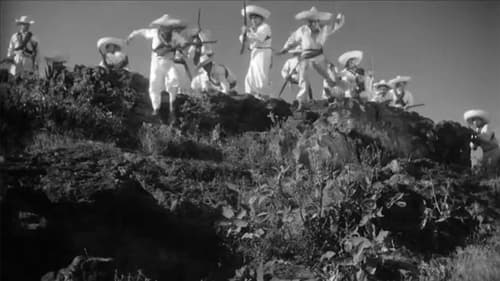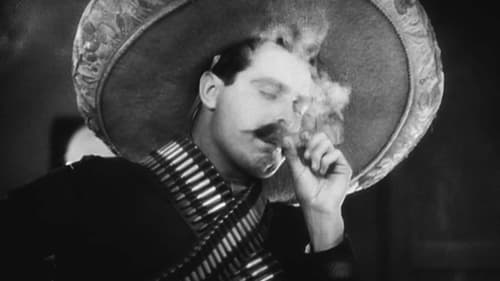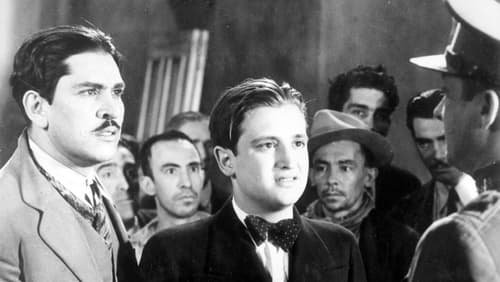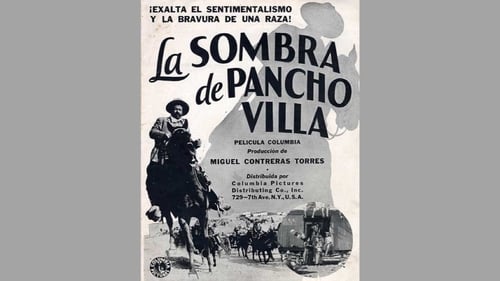
Alfredo del Diestro
Рождение : 1885-10-07, Valparaíso, Chile
Смерть : 1951-01-01
История
Actor and film director, born in Valparaíso Chile, October 7, 1885, died in Mexico City in 1951. Son of Spanish merchant Juan del Diestro and Italian pianist Matilde Cavaletti, Alfredo del Diestro spent his adolescence in Havana with his parents. In 1900 he returned to Colombia with the theatrical company Juan del Diestro, formed by him and his younger brother Juan. The company remained in the country until 1903, when it resumed its transhumance through Central America and the Caribbean. In Havana he met the Mexican actress Emma Roldán, and married her.
In 1920, when he was doing a season at the Municipal Theater of Cali, he met Francisco Antonio Posada, who proposed him to co-direct with the Spaniard Máximo Calvo the silent feature film María. Del Diestro did the art direction, directed the dialogues and the staging. He returned to Mexico in 1924, where he continued working in film. His most outstanding performance was in the feature film Allá en el rancho grande, made in 1936.

Writer
A murderer turns himself to the police, but claims amnesia and insists he's unable to tell them anything about his crime.

Young man goes to Mexico City in search of opportunity and gets framed for another person's embezzlement at their place of employ. Meanwhile, back home, his fiancée the blind woman...

Two military goons slaughter a young man's parents and siblings. A few years later, the same guys rape and murder his wife, then use their young son for target practice. Enough is enough.

Child whose father was murdered grows up and seeks revenge, also falling in love with a new victim of the same bad guy.

Don Eusebio
While tracking down the three men that killed his father, a notorious bad-ass commits other misdeeds, seemingly based on his desire to wreck as many lives as possible. Doesn't really have anything to do with the historical figure known as Remington, though they used his name for the character here.

Biography of early-1800s Mexican priest/statesman.

A 1942 film directed by Miguel M. Delgado.

El Incurable (Don Atanasio)
Every passenger boarding The Express has a story.

Don Ramón
Cantinflas enjoys the bullfight show, and wants to crash in every of these spectacles. Also, there's a professional bullfighter, Manolete, who is identical to Cantinflas. Manolete has to give a bullfight show in a village, but Cantinflas arrives first as a stowaway in a train, and he'll be mistake by the real bullfighter. Cantinflas will give us a demonstration of courage.

Andrés

A 1940 film directed by Fernando de Fuentes.

Gustavo Reynoso
A 1940 film directed by Robert Quigley.

El güero Margarito
During the Mexican Revolution, the people tired of living in poverty and enduring the atrocities committed by the federals, decide to follow one of their own, General Demetrio Macias, a thief with tricks he learned in jail and who along with "La Pintada" decides to take his people to victory. Led by Captain Anastacio Montañez, the newly formed army fight and honor their code at the same time as they loot houses to spread the wealth.

El médico (Doctor Gutiérrez)
Lives of the tenants in a shabby-genteel apartment house. Miserly landlord learns valuable life lessons.

Aging bank-teller gets mixed up with a nightclub singer.

Mariscal Bazaine
Dazzled by the Empress Carlotta's graciousness, magnanimity and charm, a young officer in the Mexican army switches his allegiance to the Imperial government with Maximilian as figurehead. Bad move, space cadet.

The story of Mexican President Benito Juárez and the emperor Maximilian of Habsburg and the empress Carlota.

Rosalio Mendoza
During Mexican Revolution, Rosalio Mendoza survives by making and winning favors from both factions, the governmental forces and Zapata's Army. His hacienda welcomes everybody, and Mendoza is considered a good friend of his guests. Eventually, the situation becomes unsustainable and he has to take sides. Betrayal and deception overcome and Mendoza's dark side surfaces

La noche del pecado is a Mexican and North American co-production directed by Miguel Contreras Torres with Ernesto Vilches, Ramón Pereda, Medea de Novara and produced by Contreras Torres in 1933.

Colonel Julián Carrasco
Colonel Carrasco's wife Marta leaves him taking his young son. The child, Juan, grows into an admirable and well-mannered young man. Having been promoted to a higher rank of power amidst the Mexican Revolution, the indulgent and corrupt Colonel accepts a bribe to free a revolutionary, Felipe Martinez, from his prison. Martinez has been sentenced to execution at the hands of a firing squad. Carrasco asks to have the revolutionary replaced by absolutely anyone. In a twist of fate, that anyone turns out to be his own long lost son Juan. Upon receiving this news, Marta races to the prison and explains the predicament to Carrasco. He subsequently desperately attempts to prevent the gunning down of his son by his very own government officials.

Jefe de policía
Llorona is a figure unique to Mexican folklore -- the wailing spirit of a woman who lost or killed her child and now returns to seek revenge and haunt the living. With its framing story and flashback structure, this film sets forth a couple of variations of the story.

Medrano
A 1933 film.

Benson

Director

Art Direction
María tells the tragic love story of María, a beautiful young woman, and her half brother Efraín, a handsome young man from Valle del Cauca. They both fall in love and live their romance on the farm "El Paraíso", in Valle del Cauca, but not everything is rosy, since Efraín must go to Bogotá because of study reasons leaving María with pain in her soul. Some time later, María becomes ill and Emma tells her brother about the situation.

Writer
María tells the tragic love story of María, a beautiful young woman, and her half brother Efraín, a handsome young man from Valle del Cauca. They both fall in love and live their romance on the farm "El Paraíso", in Valle del Cauca, but not everything is rosy, since Efraín must go to Bogotá because of study reasons leaving María with pain in her soul. Some time later, María becomes ill and Emma tells her brother about the situation.

Director
María tells the tragic love story of María, a beautiful young woman, and her half brother Efraín, a handsome young man from Valle del Cauca. They both fall in love and live their romance on the farm "El Paraíso", in Valle del Cauca, but not everything is rosy, since Efraín must go to Bogotá because of study reasons leaving María with pain in her soul. Some time later, María becomes ill and Emma tells her brother about the situation.

Salomón
María tells the tragic love story of María, a beautiful young woman, and her half brother Efraín, a handsome young man from Valle del Cauca. They both fall in love and live their romance on the farm "El Paraíso", in Valle del Cauca, but not everything is rosy, since Efraín must go to Bogotá because of study reasons leaving María with pain in her soul. Some time later, María becomes ill and Emma tells her brother about the situation.







